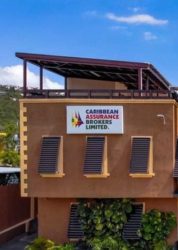The eastern Caribbean is not having the best of times. Borrowings and the economic fallout flowing from the global economic crisis of 2008 have severely constrained economic activity in the region plus the member states of the ECCU share a currency that the individual countries have little control over.
In Anguilla, growth has virtually collapsed, falling from an average of 15.8 per cent between 2005 and 2007 to an average contraction of 5.5 per cent for the period 2008-2012, resulting in two local banks facing hard times with their non-performing loans escalating to levels beyond the guidelines set by the Eastern Caribbean Central Bank (ECCB) and in turn resulting in the banks not meeting their capital requirements.
According to a speech by the chief Minister of the island, “In recent times there has been great unease about the operations and performance of the two indigenous banks in Anguilla, the Caribbean Commercial Bank (Anguilla) Limited (CCB) and the National Bank of Anguilla Limited (NBA). This has given the government cause for concern. Part of this concern is due to the fact that they are the two largest financial institutions in the country, together accounting for 76.7 per cent of the total assets of the banking sector.”
 The global economic and financial crisis have hit the country’s major sectors, tourism and construction and this has had a significant impact on the performance of loans to these sectors. The banks have been facing a number of challenges including poor earnings performance, declining asset quality, high levels of non-performing loans, weak corporate governance and the inability of their managements to reverse the situation.
The global economic and financial crisis have hit the country’s major sectors, tourism and construction and this has had a significant impact on the performance of loans to these sectors. The banks have been facing a number of challenges including poor earnings performance, declining asset quality, high levels of non-performing loans, weak corporate governance and the inability of their managements to reverse the situation.
The organs of the ECCB, the Monetary Council and the Ministerial Sub-committee on Banking, after due consideration and representations by the Government of Anguilla, which is a member of the Monetary Council and the Ministerial Sub-committee, have decided to invoke Part IIA, Article 5B of the ECCB Agreement Act 1983.
This step has not been taken lightly and extensive discussions have taken place with the Foreign and Commonwealth Office of the British Government and they too have concurred with this action.
The daily operations of the banks will be carried out by the current staff of the respective banks under the supervision and close monitoring of the ECCB with a change only in senior management and the Board. Under the guidance of the ECCB and the other institutions work will be undertaken to restore these banks to a state of normalcy.
The ECCU member governments have agreed that the three critical policy areas at this time are growth, financial stability and fiscal stability. The Chief Minister stated, “However, the efforts to attain financial and fiscal stability will not be successful unless there is some economic growth. We therefore intend to initiate discussions with the British Government on a public sector investment development programme for the long term sustainability of the Anguillan economy.”
He continued, “In terms of the private sector, as Chief Minister and Minister of Finance, I immediately recognised the fundamental weaknesses in Anguilla’s economy especially as it related to two the most important tourism projects, namely the Cap Juluca Resort Project and the Flags Luxury Properties Golf Course Resort Project both of which were mired in legal and financial difficulties and sought to get them stabilised so that they could generate the employment and economic activity expected of such large projects.”
Related posts | Mixed views from Eastern Carib States




